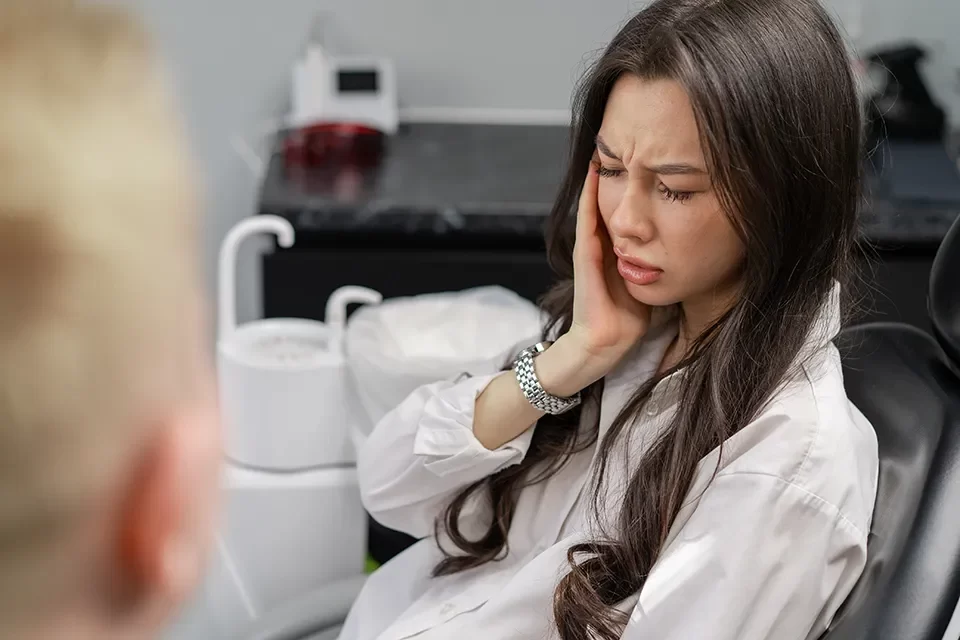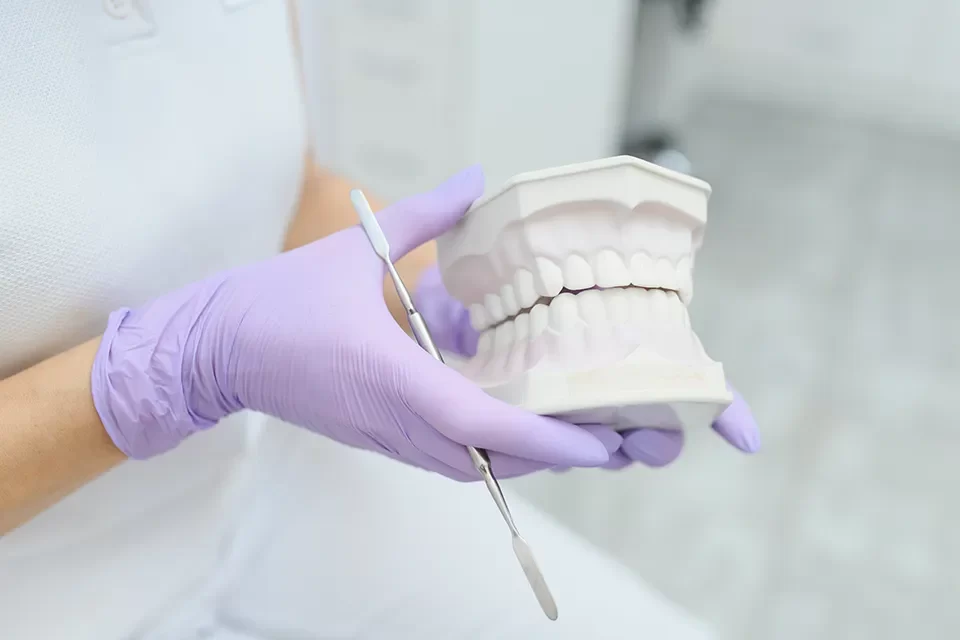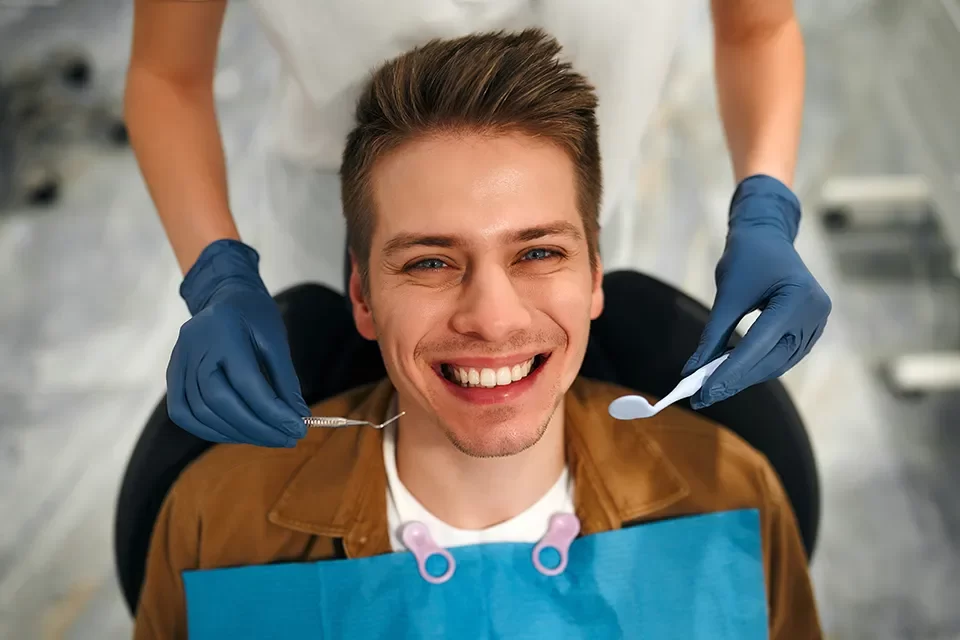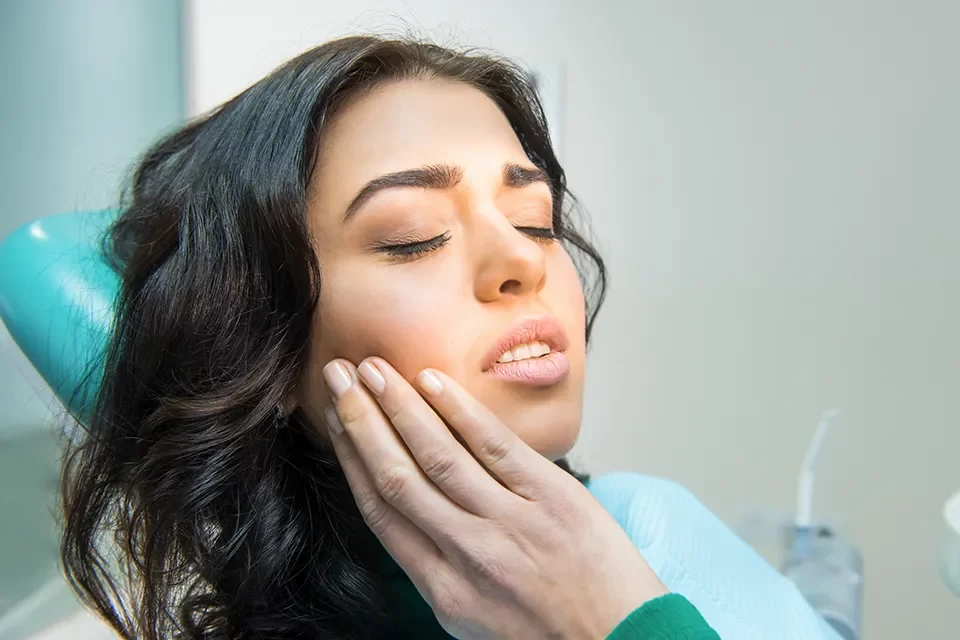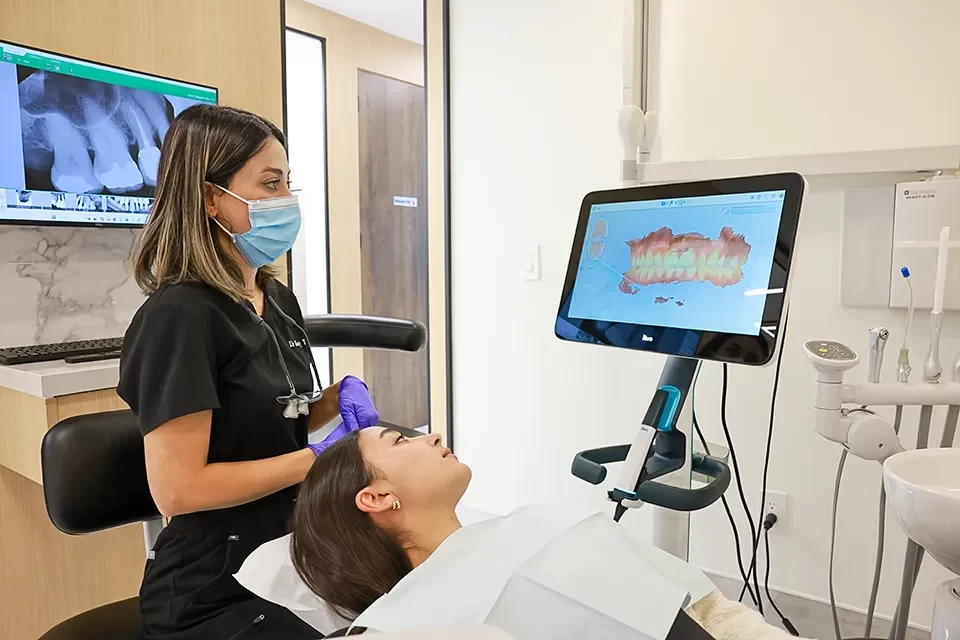TMJ Disorders Leslieville
Jaw pain, clicking or popping, morning headaches, ear pressure, and difficulty opening wide can all indicate issues with the jaw joint and its surrounding muscles. At Dental Land Leslieville, TMJ Disorders Leslieville care focuses on precise diagnosis, conservative treatment, and practical habits that reduce pain and protect your teeth—so eating, speaking, and sleeping feel normal again.
What Are TMJ Disorders?
The temporomandibular joints (TMJ) connect your jaw to your skull, working with a disc and a network of muscles and ligaments. Problems may involve the joint itself (such as disc displacement, inflammation, or arthritis) or the surrounding muscles (including jaw fatigue and clenching-related pain). With TMJ Disorders Leslieville, our goal is to identify the true drivers of your symptoms and treat them with the lightest touch that will last.
Common Signs & Symptoms
- Jaw pain or pressure near the ears
- Clicking, popping, or grating (crepitus) on opening or chewing
- Limited opening, “lock” or the jaw shifting to one side
- Morning headaches or temple tenderness
- Neck/shoulder tightness, facial fatigue by day’s end
- Tooth wear, chipping, or notches at the gumline from clenching
- Ear fullness or ringing (non-ear causes)
If you recognize these symptoms, a short TMJ Disorders Leslieville assessment can clarify what’s happening and what helps the most.
Why It Happens (and What Makes It Worse)
- Clenching & grinding (bruxism): Often stress-related; can occur during sleep or focused tasks.
- Bite interferences or worn restorations: Small “high spots” can overload muscles.
- Injury or strain: A knock to the jaw, a wide opening at the dentist, or a yawn strains.
- Joint changes: Disc displacement, arthritis, or inflammation within the joint.
- Posture & habits: Forward head posture, phone cradling, gum chewing, nail/pen biting.
- Systemic factors: Sleep apnoea, anxiety, and certain medications can increase parafunction.
Understanding your mix of triggers guides a predictable TMJ Disorders Leslieville plan.
Your TMJ Disorders Leslieville Assessment
- Conversation & history – When pain started, what worsens/relieves it, any injuries, sleep quality, and stress.
- Jaw function tests – Range of motion, joint sounds, muscle tenderness, and bite contacts.
- Tooth & wear check – We note chips, craze lines, or flattened cusps linked to clenching.
- Imaging (as needed) – Low-radiation digital X-rays; CBCT or MRI when joint pathology is suspected.
- Plain-English plan & estimate – You’ll receive written steps, timelines, and fees so expectations are clear.
Conservative Treatments That Work
Our TMJ Disorders Leslieville care is stepwise—start simple, add only what you need.
Education & Self-Care (Day One Relief)
- Soft diet during flare-ups; avoid very chewy, hard, or wide-opening foods.
- Heat (for muscles) or cold (for inflamed joints) 10–15 minutes, 2–3×/day.
- “Lips together, teeth apart” rest posture; tongue lightly on the palate.
- Gentle stretching and controlled opening exercises we’ll demonstrate.
- Short-term over-the-counter anti-inflammatories if appropriate (we’ll advise or liaise with your pharmacist/physician).
Custom Night Guard (Stabilization Splint)
A precise, custom-fitted acrylic appliance reduces muscle load and protects teeth from grinding wear. We fine-tune it over follow-ups so it supports your jaw without creating new bite issues. This is a cornerstone of many TMJ Disorders Leslieville plans.
Bite Refinement (Only When Indicated)
If a specific high spot is clearly provoking muscles, micro-adjustments can help. We’re conservative: bite changes are small, measured, and only done when the benefit outweighs the risk.
Physiotherapy & Exercises
Targeted jaw and neck physiotherapy improves mobility and reduces trigger points. We can refer to trusted local providers and coordinate your program.
Trigger-Point Therapy & Medications
For stubborn muscle knots, short-term trigger-point therapy or muscle relaxants may help. We’ll review pros/cons and ensure it’s appropriate given your health history.
Botulinum Toxin (Selective Cases)
For severe clenching with hypertrophic masseters, carefully dosed botulinum toxin can reduce muscle overactivity. We reserve this for cases that don’t respond to first-line measures and discuss potential trade-offs (e.g., temporary chewing fatigue).
Joint-Focused Care & Referral
If we suspect significant disc displacement without reduction, inflammatory arthritis, or recurrent locking, we may recommend advanced imaging and refer for arthrocentesis/arthroscopy with an oral & maxillofacial specialist. Collaboration is part of comprehensive TMJ Disorders Leslieville care.
Everyday Habits That Protect Your Jaw
- Keep teeth apart at rest. Touching teeth is for chewing and swallowing only.
- Limit extreme opening. Support your jaw when yawning; avoid over-stretching.
- Reduce gum chewing and hard foods. Think almonds, jerky, and ice.
- Posture check. Ears over shoulders; raise screens to eye level.
- Stress strategies. Taking brief breathing breaks, going for short walks, or using mindfulness apps can help reduce clenching triggers.
- Night guard use. Wear as directed; bring it to cleanings so we can check fit.
These small shifts make TMJ Disorders Leslieville results more durable.
How We Measure Progress
- Pain scores and headache frequency
- Opening range and jaw deviation on opening
- Muscle tenderness on gentle palpation
- Wear patterns on teeth and appliances
- Sleep and daytime clenching awareness
We adjust your plan based on these markers—adding or dialling back steps to suit your response.
Costs, Insurance & Transparency
Before starting TMJ Disorders Leslieville, you’ll receive a written estimate that may include the exam, imaging (if needed), a custom night guard, and follow-up reviews. Many plans contribute to appliances and diagnostics; coverage varies by policy. We can submit pre-determinations and phase care to match your budget.
When to Seek Urgent Help
- You cannot close your mouth (open-lock) or cannot open it at all
- Swelling, fever, or new numbness accompany jaw pain
- Jaw pain follows a blow to the face or recent trauma
Call us for guidance; we’ll prioritize an urgent TMJ Disorders Leslieville assessment or direct you to appropriate care.
FAQs
Will a night guard cure TMJ?
A guard doesn’t “cure” the joint, but it often reduces muscle overload, protects teeth, and calms symptoms. It’s most effective alongside habits, exercises, and stress management.
Is clicking dangerous?
Clicking without pain or limited motion can be harmless. If clicks come with pain, locking, or reduced opening, book an appointment with TMJ Disorders Leslieville to prevent escalation.
Do I need braces to fix TMJ?
Orthodontics can help with specific bite problems, but it isn’t a universal solution for TMJ. We start with conservative measures and discuss orthodontic referral only when clearly indicated.
How long until I feel better?
Many notice improvement within 2–6 weeks with self-care and the use of an appliance; complex joint issues may take longer. We set realistic milestones and review progress.
Can fillings or crowns affect TMJ?
Poorly balanced restorations can contribute to muscle strain. We check your bite after any restorative work and make micro-adjustments if needed.
Do injections or surgery work?
They can help with carefully selected cases. Our approach is stepwise: conservative first, then targeted interventions if simple measures don’t achieve stable relief.
Book TMJ Disorders Leslieville
If jaw pain, clicking, or morning headaches are getting in the way, schedule TMJ Disorders Leslieville at Dental Land Leslieville. We’ll pinpoint the cause, explain options in plain language, and design a conservative plan—appliance therapy, exercises, and practical habits—that fits your life and budget. Call us or request an appointment online today.


